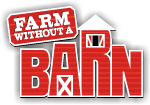Landscape Soil
 Devin with his butternut squash grown in SEA SOIL
Devin with his butternut squash grown in SEA SOIL
Three years ago, my son Devin came home from our local seed swap with what he called magic bean seeds. He was four at the time and we had been living in a new home for a year or more that we purchased un-landscaped. He proudly announced that he had planted them in a secret location and I would never find them. Thinking that the chance of those seeds germinating was slim (I didn't even know if he had remembered to cover them with soil), I really had no worries.
The neat thing about starting fresh with the landscaping is that you get to start with the foundation, the landscape soil. Of course being the daughter of a composter I had a big truck of Sea Soil delivered and I liberally plastered that place in it. I didn't have any money to buy plants but I had a large selection of picked over plants from a little garden centre I used to own. These plants needed a lot of love and I didn't think a lot of them would live so I planted wherever I had space as I was sure most of them would be pulled out anyway. Turns out when you start with the basics and ensure the soil is very fertile and healthy you will be very successful in creating an amazing landscaped yard. Choosing Sea Soil as my landscape soil created a very fertile garden of which all of my plants lived and I was definitely heading down a road of overcrowding.
The funny thing was that after a few months of Devin planting those "magic bean seeds", vines started popping out of all my plants in the front yard, they even spilled onto the driveway.
That fall when we harvested 20 butternut squash from two plants, Devin was thrilled to show his kindergarten class what he had grown. To me, the most important issue is that those plants are grown in the most healthy landscape soil available. My family uses only fish and forest fines to create a superior two-year composted soil. I use this product for everything I grow with amazing success and top my plant beds up with small amounts when I feel they need refreshing.
At home we never need to use chemical fertilizers or additives which gives me piece of mind as you never know when you are going to be forced to eat 21 fresh butternut squash that grew out of your boxwoods.
On a side note you should know that this yard was very small so filling it full of Sea Soil wasn't to hard. Recently we have moved onto acreage to teach our kids about growing food and raising some chickens. I was conservative with the Sea Soil this time and definitely had the same results. Healthy Soil = Healthy Plants = Healthy People.
Upcoming Events
There are no events to display.
SEA SOIL Articles
Growing Your Soil
Not the Landfill. All of our bags, pallets and pallet wrap can be recycled. Our plastic is made from no. 4 LDPE (Low-density polyethylene) plastic which can be recycled by returning clean, dry, empty plastic bags to recycling drop off centers or retailers and municipalities (curbside collection also) that provide designated plastic bag recycling. Wooden pallets can be reused or recycled at designated wood recycling areas with your municipality.
OMRI Tested
We believe that all soils should have a required minimum set of testing standards when it comes to growing. That is why we contacted O.M.R.I. years ago to start the process of approving SEA SOIL. We regularly test our SEA SOIL for heavy metals, ecoli and even fecal coliforms to make sure SEA SOIL is the best choice for gardeners and growers.



